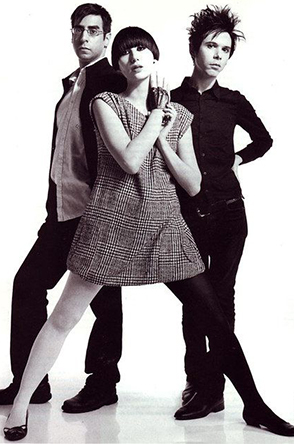
Gemma Pike on Lou Reed's Influence
He has never been more relevant than he is right now.
Assistant Music Director at triple j and host of the J files on Double J, Gemma Pike tells us why Lou Reed is a true a musical maverick.
2019. It’s a far cry from 1967… the year that saw the banana clad debut album for The Velvet Underground released. From that date, five decades of new music have passed, with each generation having artists that call on the seminal influence this band had. At the core of it all, the inimitable Lou Reed. From his work with The Velvet Underground, to his seminal solo album Transformer, even the more difficult listens of albums like Metal Machine Music and Lulu, he stands as a musical maverick. And he has never been more relevant than he is right now.
Just last month he received song writing credit on Haim’s single ‘Summer Girl’, a song that interpolates the walking bass and whimsical vocals from Reed's classic 'Walk On The Wild Side' - six years on from his passing.
Sure, you might think that the great New York rock and roll revival of the early noughties would have to be his cited period. It certainly seemed we hit max Lou Reed adoration, with bands like The Strokes quipping to music rags all around the world that he was the sole reason they started a band. And as the biggest group in the world at the time, that no doubt resulted in countless young music fans making nervous enquiries at the local record shop, or perhaps a more privy internet search, as to who this “Reed” was. The Yeah Yeah Yeahs made no secret that they took heavily from Reed’s ideals - the voyeuristic, the provocative, the urban and rhythmic. And likewise they were equally as beholden in the arts scene as they were music, just as Reed was. Let’s not forget The National and their Reed-esque drawl, Interpol’s seedy after-dark storytelling, or LCD soundsystem’s ‘White Light/White Heat’ inspired call and response in ‘Drunk Girls’.

Though surely the early 90s would be up there, as Irish band U2 took their acclaimed Zoo TV tour around the globe. Playing over 150 shows worldwide over the course of two years, they delivered what was at the time one of the most dazzling multisensory live productions. Within it each night, a subdued cover of ‘Satellite Of Love’ - Bono and The Edge would sing the song against a video backdrop of Reed (at the odd show he even joined them live), which in turn exposed him to more than five million people worldwide on this tour alone.
Jump back another decade, and you can easily draw a comparison between the signature guitar drone of Reed and the swirl of 80s shoegaze stalwarts My Bloody Valentine. Pioneers at the time of this burgeoning genre, their fingerprints are now over everything from metal to electronica to pop. But then again, surely the 1970 hold true, as “protégé” Jonathan Richman demonstrates that even in the earliest of days, Reed’s influence spoke volumes.
I think of the last 50 years, and don’t question Reed’s position as a seminal icon in modern music one iota. But I do believe it is now, this current moment. The next second, minute, the days and weeks and years to come, that will be Reed’s most impactful. Because as each new artist calls on him as an influence, his legacy is only more solidified.

About the Author: Gemma Pike
Gemma Pike is triple j’s Assistant Music Director, and host of The J Files – a weekly two hour music documentary on Double J and available via podcast.
Check out The J Files online and listen here
Follow Gemma on Twitter: @pike_gemma

